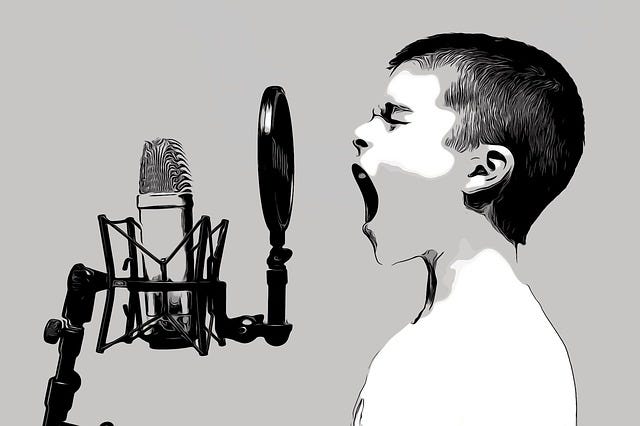Latest news about Bitcoin and all cryptocurrencies. Your daily crypto news habit.

Speaking at the Verbier Art Summit on digital art, Douglas Coupland made headlines recently by declaring that he thought virtual reality would signal the end of books. “Maybe books are overrated,” he quipped. “Maybe they are an interim technology on the way to VR and we can now get rid of our books.”
Now, obviously, his goal here was to be controversial. After all, Coupland has made a career of jumping the line between digital and traditional mediums, and he’s no stranger to ruffled feathers. He wants to get people talking, and he’s comfortable pushing buttons and sitting back to see what people do in response.
But his comments, as click-baity as they are, raise an interesting question about the role we see for VR in storytelling and society. VR has the potential to radically change the way we consume entertainment, but the idea that it will “replace” a pre-existing medium feels like a gross misunderstanding of the way that society consumes media.
Consider, if you will, when video killed the radio star.
In the 1960s, after the widespread adoption of television, radio kept going strong: but radio dramas all but died out. The number of successful US radio dramas from 1960 to 2000 can be counted on one hand (and three of them were radio adaptation of the original Star Wars trilogy!). Of course, that doesn’t mean radio died; instead, it changed direction. From plays and serials it became all about music and talk shows, and for a time, it seemed that we were done with narratives told exclusively by voice. And then, something happened: the internet gave us podcasts. Suddenly a voice-based narrative didn’t have to interest the entire population of Chicago to make it onto the airwaves. It could target smaller audiences thanks to subscription services, and it could reach people on their own time (a necessity in the modern era). Now there are hundreds of popular narrative podcasts, including some that take on the guise of old-school radio, like The Thrilling Adventure Hour or Welcome to Night Vale.
It’s not the only time storytelling has morphed and developed. It was once thought that long-term, complex narratives, visual “art”, was only to be found in movies. Auteurs wrote film; television was the pap of the masses. But in the late 2000s, TV experienced a shift; we’re considered by some to currently be experiencing the ‘Golden Age’ of narrative television. People often tie the rise to The Sopranos, which was one of the first shows to encourage binge-watching, drawing complex narratives out from episode to episode and trusting audiences to follow along. Television once penalized artistic expression in favour of reaching as wide and mainstream an audience as possible; now, thanks (again) to the reach of the internet, small but dedicated followings are often as sought-after as prime-time numbers. Not that everyone show doesn’t want to be Game of Thrones! But it’s no longer the only metric for success.
If storytelling is the name of the game in television, it seems to be a trend that is spreading across the board. Look at the rise of the Marvel Cinematic Universe, which proves audiences want cohesion and narrative flow even in definitionally “popcorn” entertainment. Now Sony is trying to create their own interconnected universe with monster movies like The Mummy and whatever is coming out next even though The Mummy painfully flopped. And video games are following the same trend.
That shift towards more complex narrative is tied, once again, to technology. This time, it’s artificial intelligence that is opening doors that were once closed due to technological impossibility. Dialogue trees are all well and good, but they constrain players to limited possibilities (and take a very long time to program and write!). Having even simple AI allows players to engage in games in new and more immersive ways, and immersive is the name of the game when it comes to — well, games. It’s one of the reasons VR is poised to make such a difference in the gaming community, but the idea that VR will replace it entirely might still be off-base. Look at the popularity of games like Cuphead, which uses 1920s-style cartoon graphics. People could have argued, when computer graphics first came out, that they would wipe out traditional animation. After all, they look great, they’re realistic, they’re immersive! What more could people want? The answer, unsurprisingly, is… art.
Entertainment has always gone hand-in-hand with art, and that’s a complicated relationship that’s hard to understand and even harder to predict. The reasons we enjoy something don’t always come down to a straightforward one-for-one exchange. Do we like to be immersive in stories? Sure, of course we do. But some people will never give up the smell of a brand new book. Others want bright, unrealistic colours and flashing lights, or, hell — cute celebrities they can crush on.
So, when Douglas Coupland said that VR would replace books, what he was really saying was that he fundamentally misunderstands why humans consume art and entertainment. Will VR replace books? No. Will it replace video games? Probably not. It’s an entirely new medium, and there is more than enough room for it to exist, side by side, with its antecedents. After all, if everyone else can get along so well together, why not VR?
Written by Wren Handman for www.hammerandtusk.com.
Will VR Kill Books? was originally published in Hacker Noon on Medium, where people are continuing the conversation by highlighting and responding to this story.
Disclaimer
The views and opinions expressed in this article are solely those of the authors and do not reflect the views of Bitcoin Insider. Every investment and trading move involves risk - this is especially true for cryptocurrencies given their volatility. We strongly advise our readers to conduct their own research when making a decision.


